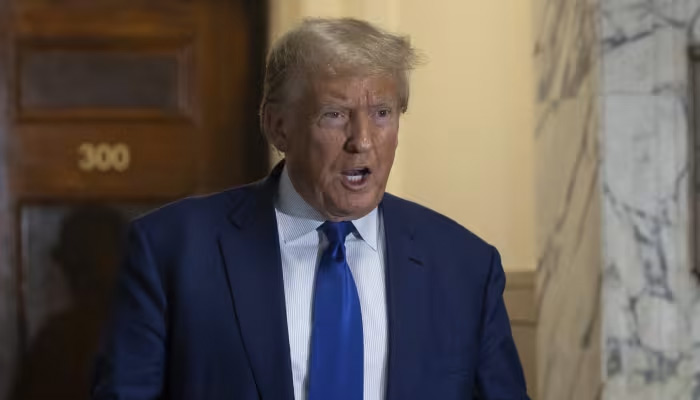Donald Trump on Monday (local time) appealed to the US Supreme Court to block a lower court ruling that had denied his claim to immunity for alleged crimes while he was president.
The appeal for the top court to pause the earlier ruling is crucial to deciding whether Trump can be put on trial for his efforts to overturn the 2020 election in which he lost to current President Joe Biden.
The appeal puts Trump’s fate in the Supreme Court’s hands nine months before election day, in which the hard-right former president is likely to be the Republican nominee to face Biden for a second time.
Trump is the first major presidential candidate in US history to be running under the cloud of multiple criminal and legal investigations and trials.
He faces 91 counts in four criminal cases over his removal of top-secret documents from the White House when he left, his use of hush money to silence damaging allegations of extramarital sex, and the multi-pronged attempt to overturn Biden’s 2020 victory.
Earlier this month, a federal appeals court — the level just below the Supreme Court — ruled that he could not claim immunity.
Trump’s claim that he is immune from criminal liability for actions he took while in the White House is “unsupported by precedent, history or the text and structure of the Constitution”, the judges said.
Trump has continued to insist that a president must have full legal immunity to be able to carry out duties without “fear” of “retribution”.
However, the Washington appeals court said that putting a president “beyond the reach” of the judiciary and legislature through granting of immunity would “collapse our system of separated powers”.
The appeals court put the ruling on hold until Monday to give Trump the opportunity to appeal to the US Supreme Court. The nine justices there must now decide whether to take the case or potentially decline — automatically allowing the lower court’s ruling to stand.
Trump’s trial over the attempts to subvert the 2020 election had originally been meant to start on March 4, but was delayed by the appeal. The timing of the Supreme Court’s response will further impact the calendar, with the presidential election rapidly looming.
Trump is accused of conspiracy to defraud the US and to obstruct the certification by Congress of Biden’s win on January 6, 2021.
The allegation is related to Trump’s organising of a raucous rally on the day of the certification vote, then telling his supporters to march on the Capitol, where they stormed past overwhelmed police officers and ransacked the building, delaying certification before finally being expelled.
Special Counsel Jack Smith filed the election conspiracy case against Trump in August 2023 and had been pushing hard for the March 2024 trial start date. If Trump can get the trial delayed until after the election and wins another term, he could potentially order federal cases against him to be dropped.

